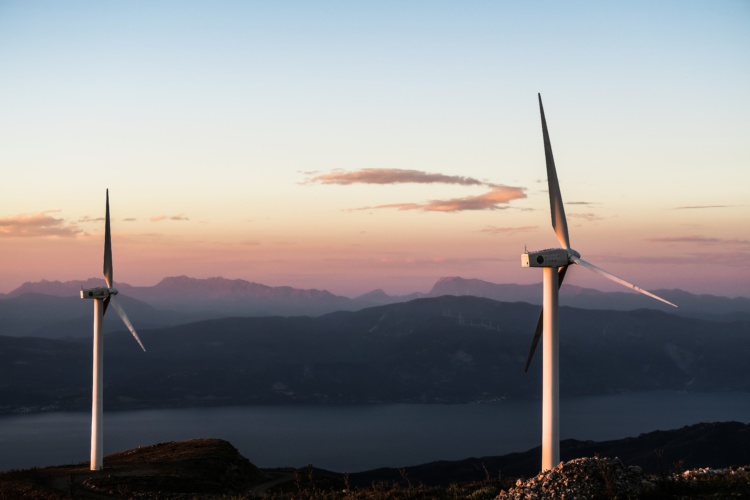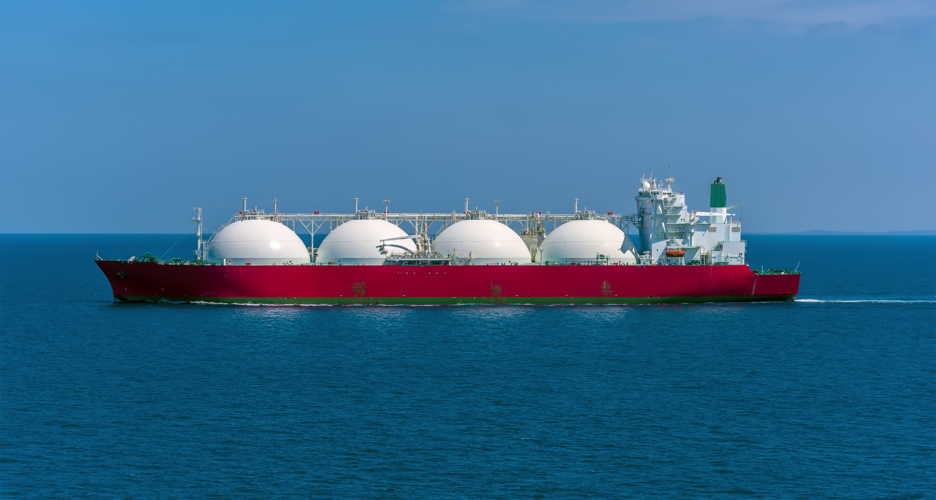The shocking events in Ukraine have led to worldwide condemnation. However, while the international sanction-led response to Russia’s invasion has been significant and largely coordinated, it has needed to navigate one massive and inescapable issue – energy.
Despite efforts to expedite the transition to clean energy technologies, many countries, particularly in the EU, remain heavily dependent on Russian oil and gas. Yet as the war in Ukraine continues, and opposition to Russia’s actions grows, that dependence is becoming increasingly untenable.

This terrible situation has brought into stark relief both the security of the world’s energy supply and the ongoing reliance on oil and gas to fuel its economies. Transitioning away from hydrocarbon-based energy to clean tech solutions such as wind, solar, nuclear, and hydrogen is desirable, but far from easy. Will the war in Ukraine accelerate the world’s clean energy transition or lead to a longer-term re-emergence of fuels such as coal?
The European response
In response to Russia’s actions, the European Commission has proposed an outline plan to make Europe independent from Russian fossil fuels well before 2030. Its REPowerEU plan includes increased liquified natural gas (LNG) and natural gas pipeline imports from non-Russian suppliers as well as larger volumes of biomethane and renewable hydrogen production. Additionally, the plan calls for faster reduction in the use of fossil fuels by boosting energy efficiency, further increasing renewables, and adding more options around electricity, as well as addressing infrastructure bottlenecks such as capacity constraints in the energy grids.
Bp to exit Russian state-owned Rosneft
Unlocking the renewables potential of the Celtic Sea
Due to its high dependency on Russian gas, the EU has not yet sanctioned this energy source, but is planning to reduce the continent’s reliance by two-thirds by the end of the year. Germany, for its part, has suspended the certification process of Nord Stream 2, forcing Nord Stream 2 AG to file for insolvency. Finland has also stopped the Finnish-Russian joint venture nuclear new build project, Fennovoima, despite the country’s plans to phase out coal by 2029.

However, in response, Russia is considering sanctions against Western countries. This may include reducing or stopping gas supplies to Europe or decreasing exports of other commodities, such as coal and steel. This has the potential to intensify Europe’s energy crisis, further hampering an already weakened global supply chain.
In regard to the energy transition, it has already become evident that energy infrastructure projects will suffer from supply chain bottlenecks. And while higher oil and gas prices make renewable energy economics more attractive, cost escalations will increase the effort required for the energy transition, and supply shortages will delay the execution of clean tech projects.
Clean energy is not a short-term solution
Currently, there are limited opportunities to diversify the electricity supply with clean technologies.
For example, increased production of hydropower and nuclear generation in the short and medium term is unlikely. Across the European continent, reservoir levels in hydroelectric dams are at historically low levels, while reported output expectations from nuclear generation are lower than historic values due to required maintenance on ageing reactors. In regard to wind power, current forecasts fall below the required installations to meet targets already set, even before the Russia/Ukraine crisis. And while solar power installations have exceeded both expectations and targets, they are still a long way from significantly reducing dependency on Russian gas.

Alternative sources for LNG supply, as well as building a global hydrogen economy, are currently being discussed between Europe and Japan, the US, and the Middle East. These options, however, are significantly more expensive than pipelines, as the natural gas must be converted into liquid and loaded onto LNG ships and transported overseas. LNG import terminal capacities also limit their ability to quickly replace Russian supplies.
Hydrogen is considered as the holy grail to replace natural gas, but this is a rather long-term option. In European decarbonization scenarios for 2030–2050, hydrogen plays a significant role. However, to reach the amounts of hydrogen-based fuels needed, a hydrogen-ready pipeline and gas network is necessary. The current continental renewable power supply is neither sufficient nor are hydrogen gas terminal facilities for imported hydrogen available in the short term to make hydrogen a suitable clean alternative.
Another way to decarbonize heating is to use heat pumps. However, especially in older buildings, heat pumps require thermal insulation, which means it will take years before they make a significant carbon impact.
The energy transition has slowed but not stalled
For EU countries to reduce their reliance on Russian gas even faster, there are several options, but probably not without significant trade-offs. For example, coal-fired electricity generation has been declining in Europe since 2012, but due to uncertainties in gas availability, nuclear, and wind and hydro generation, coal made a comeback in 2021 and could secure or increase its momentum in 2022 and beyond. Petroleum fuels could also return temporarily for both power generation and industrial customers in uses where natural gas has been growing lately.
We believe the current crisis will slow the energy transition in the short and medium term, as while clean energy technologies will replace highly priced natural gas, they won’t reduce coal production. In the longer term, however, the efforts by many countries to reduce their dependencies on oil and gas in general, and particularly on Russian supplies, will accelerate the clean energy transition. Not only is this transition imperative to meet emissions reduction targets, but also to enhance the security of worldwide energy supplies.




Nanogenerator consumes CO2 to generate electricity
Nice to see my my views being backed up by no less a figure than Sabine Hossenfelder https://youtu.be/QoJzs4fA4fo